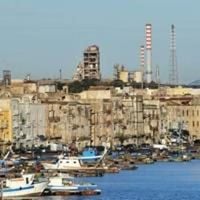Italy has taken a significant step in the steel industry by moving towards the management of its ex-Ilva steelworks, once under ArcelorMittal, to Azerbaijan's Baku Steel. On March 20, 2025, state commissioners overseeing the plant in Taranto requested government authorization for "preferential negotiations" with a consortium led by Baku Steel and the Azerbaijan Investment Company, marking a pivotal moment for the struggling facility.
Industry Minister Adolfo Urso revealed that Baku Steel's submission was deemed the best offer among three bids, the others being from India's Jindal Steel and US-based Bedrock Industries. The commissioners weighed the financial viability, industrial sustainability, and potential employment benefits of the offers when reaching their decision. However, the financial details of Baku Steel's proposal remain undisclosed, with the commissioners noting that negotiations would proceed with necessary confidentiality.
This transfer of control comes after Prime Minister Giorgia Meloni's administration placed the Ilva plant under state administration in February 2024, following its declaration of insolvency by a Milan court. At that point, Rome held a 38% stake while ArcelorMittal owned the remaining 62%. While the steelworks, which dates back to the 1960s and has faced years of legal and environmental issues, was previously acquired by ArcelorMittal for 1.8 billion euros in 2017, it fell short of expectations in terms of job preservation and investment commitments.
The steel industry is in a precarious state, with the imposition of tariffs on steel imports by former US President Donald Trump adding to the strain on production levels affected by declining demand and rising energy costs. Reports indicate that production in Taranto saw less than three million tonnes in 2023, decreasing further to almost two million tonnes in 2024, while only two out of the existing four blast furnaces remain operational.
Baku Steel, which already operates a manufacturing facility in Baku producing 800,000 tonnes a year, has also promised to introduce a floating regasification unit at Taranto's port as part of its strategic plan. This initiative is particularly vital given that Azerbaijan has emerged as Italy's second-largest gas supplier in response to Italy seeking to diminish its reliance on Russian energy sources, especially post the Ukraine invasion.
The decision to move towards Baku Steel has not been free from controversy. Opposition leaders have voiced their concerns, particularly regarding Italy's growing ties with Azerbaijan. Mario Turco of the Five Star Movement criticized the Meloni government, claiming it ties Italy too closely with a nation heavily influenced by Russia, prompting fears about strategic dependency.
Urso had hinted earlier in March 2025 about the prospect of the Italian government maintaining a minority stake in the steelworks, a move that could enhance its ability to oversee the facility's industrial development and avoid past missteps. The successful bidder, Baku Steel, will be held to strict operational criteria, including commitments to achieve decarbonisation at the plant, safeguard employment levels, and ensure significant technological investments are made.
This transfer of the steelworks is being closely monitored by various stakeholders, from local communities affected by the plant’s operations to political parties navigating their positions within a shifting industrial landscape. The implications for Taranto, a city reliant on the steelworks for much of its economic activity, cannot be understated.
As talks progress, all eyes will remain on how the negotiations unfold and whether Baku Steel can steer the once-troubled Ilva facility towards a more sustainable future while addressing both economic and environmental challenges.

